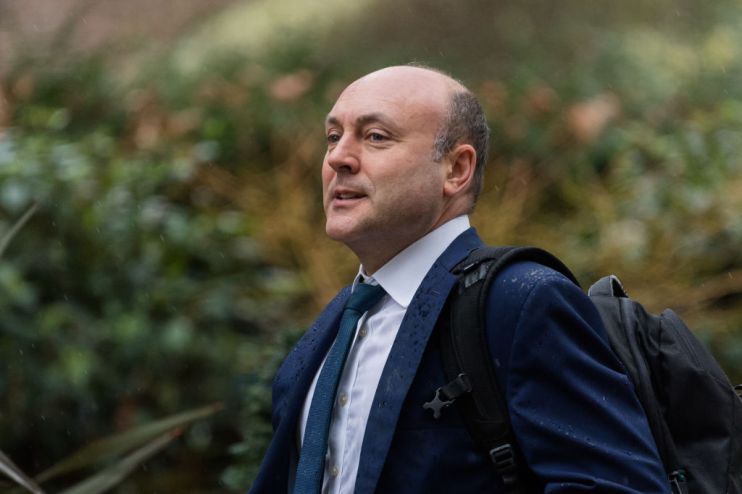City minister defends ‘safety valve’ call-in power over financial regulators

A proposed new power that allows Whitehall to overrule financial regulators will only be a “safety valve”, City minister Andrew Griffith has said.
Griffith told a Westminster committee today that the new call-in power would only be used “sparingly” in the face of concerns that it will reduce the independence of the UK’s regulators.
The government has said it will amend its Financial Services and Markets Bill to allow ministers to review and overturn decisions made by bodies like the Financial Conduct Authority and the Prudential Regulation Authority (PRA) on City regulations.
The post-Brexit bill also forces regulators to consider the City’s “growth and competitiveness” when writing new rules for the financial services sector.
Griffith told the Treasury Select Committee that the call-in power would only be used in situations where new regulations would have unintended consequences on other areas of policy.
“We want operationally independent regulators, we do not want ministers interfering in the day-to-day of regulatory decisions,” he said.
“But it’s not uncommon … to have what I would term as a safety valve. A public policy safety valve that says there will occasionally – or there could, we can’t preclude the possibility – that there may be some matters of great public policy that this committee, parliament, as directed by ministers, may want to opine on.”
Allies of Prime Minister Liz Truss said during the Tory leadership contest that she would introduce the call-in power in what was perceived as an attack on the independence Bank of England, which oversees the PRA, and other regulators.
Bank of England governor Andrew Bailey reportedly raised concerns about the measure privately and said “anything that would weaken the independence of regulators would undermine” the City in a letter to the Treasury Select Committee.
Treasury Select Committee chair and Tory MP Mel Stride today said “the circumstances in which this power might be used …. would probably be a situation where the regulator wasn’t up for the change” and that parliament therefore should be able to debate any decisions made by ministers.
The City minister did not rule this possibility out.